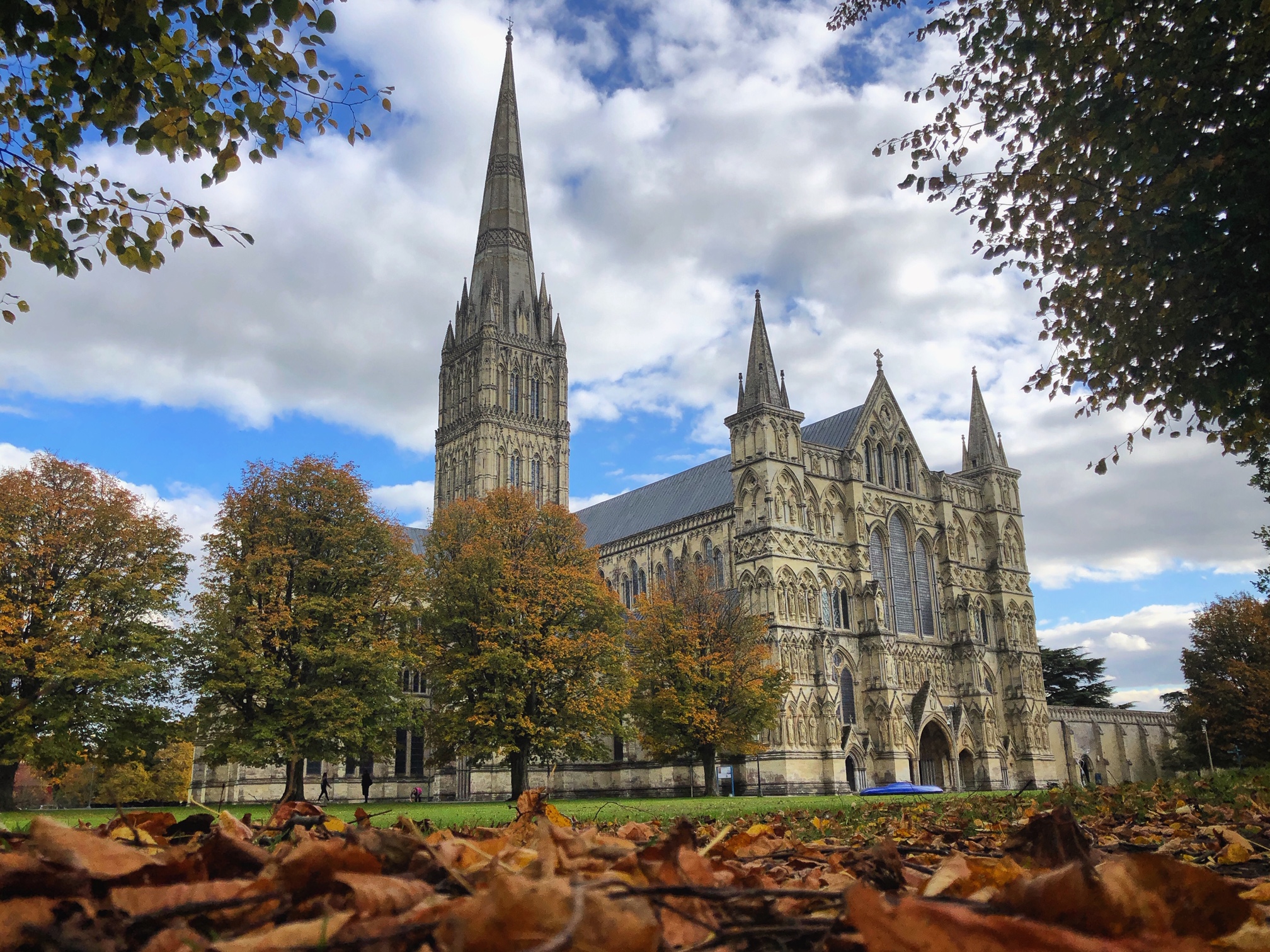What’s it all for?

What’s it all for?
A sermon by The Very Reverend Nicholas Papadopulos, Dean of Salisbury
Sunday 15 September 2024, The 16th Sunday after Trinity
Jesus said ‘…the measure you give will be the measure you get’
We have a new chorister, and we have new senior choristers. So, boys, what’s it all for? Why do we do it? You rehearse before the school day begins; you are in Evensong after it’s ended. You’re here at weekends, at Easter, and at Christmas. You spend hours with Mr Halls and Mr Challenger, learning the repertoire, going over the psalms and the anthems again and again. But why? Why do we spend so much time (and so much money) on our worship? Why the candles and the incense? Why the elaborate costumes? Why the stone and glass and wood of this Cathedral building? What’s it all for?
When those questions arise – as they should – we perhaps answer in one of two ways.
The first is that we worship as we worship because our worship pleases God, and because when we worship well it pleases God even more. We all have bad days or bad weeks. Days or weeks when we’ve been preoccupied with the demands of our work, with the difficulties in our relationships, with the ghastly state of the world. Days or weeks when we’ve barely thought of God or what God might want of us. Days or weeks at the end of which we sub-consciously believe that perhaps the orderliness of our processions, the eloquence of our prayers, or the intonation of our singing will make the difference. Our worship will bring God back to us. It will calm God or placate God or appease God.
Well, it won’t. It couldn’t. And it doesn’t need to. God is by his very nature totally and irrevocably committed to each one of us, closer to us than we are to ourselves. Our un-ironed surplices, our flat notes, and our inattentiveness to the sermon make not a jot of difference. God is incapable of doing anything other than loving us: we cannot make God love us more or love us less.
The second is that we worship as we worship because our worship makes us feel better.
We come to Evensong bothered and bewildered and we leave bewitched. We are more centred, more relaxed, more focussed. We go out from here better people, more collected and readier to face the demands of the week.
Well, maybe. But that can’t really be what it’s all for, can it? The Dean’s summer reading was, as you would expect, irretrievably high-brow. In the most recent Cormoran Strike novel the detective scoffs at the phenomenon of wealthy clients paying vast sums of money for reiki treatment. He’s told it makes them feel warm and relaxed. ‘A hot water bottle and a glass of gin would do the same’ he responds. There are many ways to improve our well-being. Worship may be one of them, but if it’s its principal purpose then we’re saying that all this is about us. And surely that can’t be right.
So, boys, what’s it all for? It’s for God. Here’s the thing: it’s that simple. It’s for God. Not because if we do it we’ll get a happier God (or a happier us). But because God is God, and if God is as we believe God to be then God is worth it. If God’s love is the energy that keeps each one of us alive in every moment of every day – if God is the one from whom we’ve come and to whom we will return – then God is worth it. Worth our time, worth our attention, worth the very best we can offer – in architecture and in stained glass, in dignity and reverence, in prayer and in music. Our ancestors gave up the best that their lands produced: the first fruits of the harvest and the choicest of their herds. We give ourselves, dedicating this place and this time to God, and in this place and at this time straining every sinew to give whatever we can.
Now let us pray.




